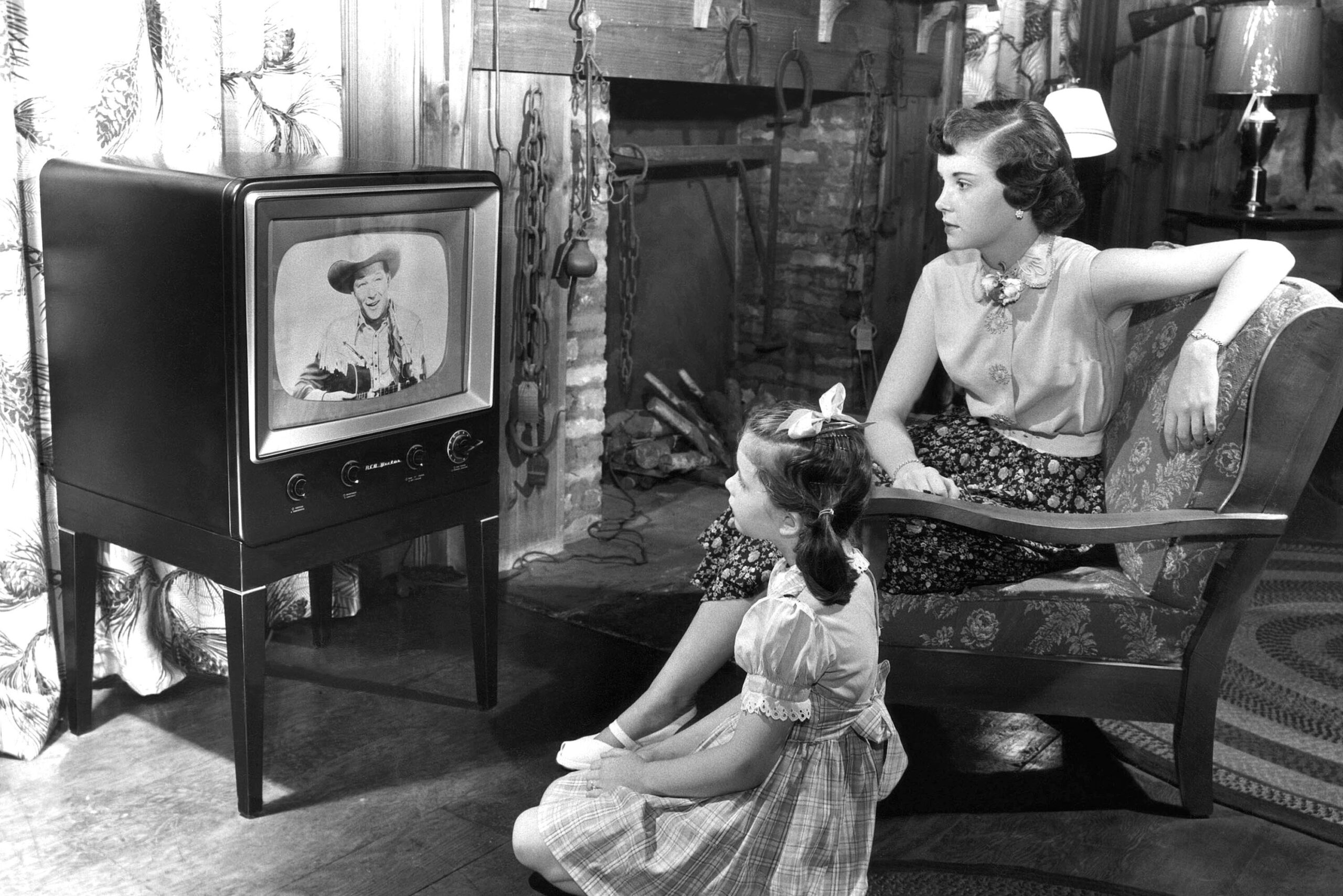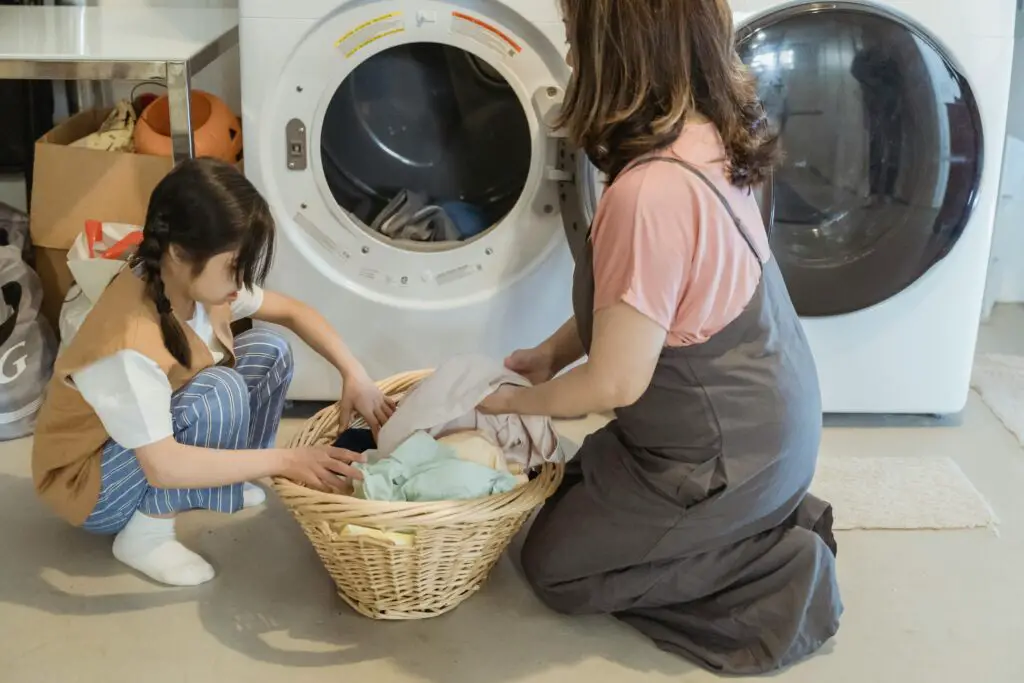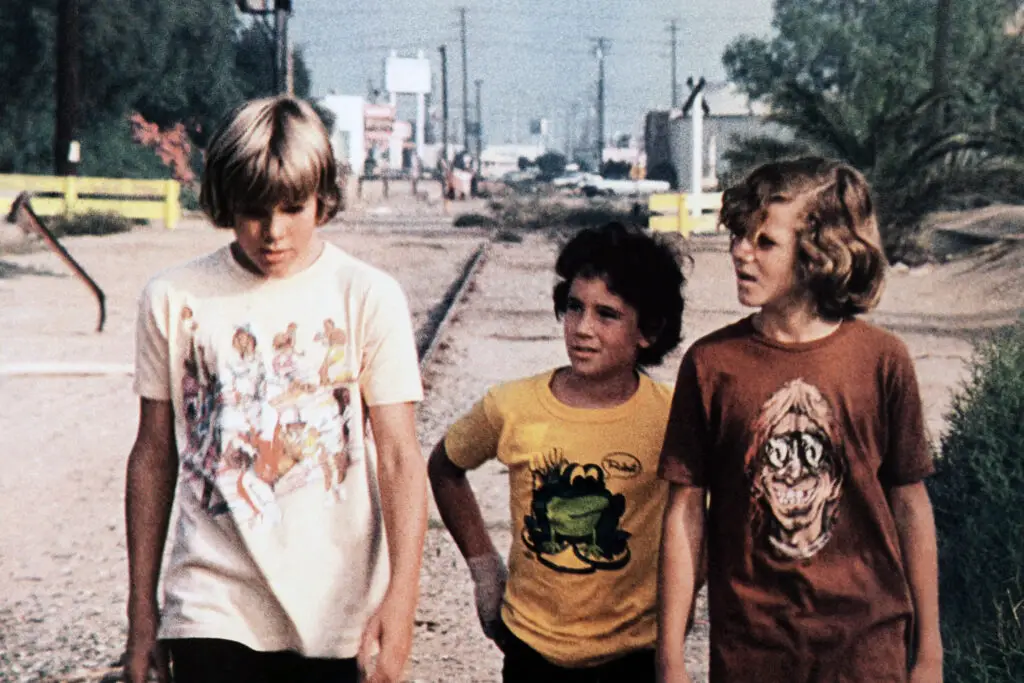1. Being the Remote Control

Before smart TVs and voice commands, kids were the remote control. If Dad wanted to change the channel, you’d better hustle over and twist that dial—yes, the one that only went up to 13. And if he wanted the volume up just a smidge? That meant getting back up again. It didn’t matter if you were cozy on the couch or deep into your cereal; your job was to obey without eye-rolling shares MSN.
There was no power struggle either—you weren’t calling the shots. That simple act reminded you every day that you weren’t the boss. You were a junior member of the household with tasks, even if they involved technology from the Stone Age. And strangely, it taught respect and patience, because if you complained, you might get reassigned to antenna duty too adds Parents.
2. Sitting at the Kids’ Table

Holiday dinners had a clear caste system, and you were not at the top. You were sent to the wobbly card table in the corner with plastic forks and the younger cousins who may or may not have been potty-trained. The adult table had the real food, the juicy gossip, and the good rolls—none of which made it over to your side shares PBS.
You learned pretty quickly that age came with privileges. There was no shortcut to the grown-up table, no amount of charm or bribery that could get you there early. You had to wait your turn, sometimes well into your teens. That long wait taught you humility—and maybe how to cut your turkey with a spoon shares HealthyChildren.org.
3. Wearing Hand-Me-Downs

If you had older siblings, your wardrobe was a history lesson in outdated trends. You didn’t get to pick your style; it was picked for you—usually in 1983. Pants that were too short, shirts with mystery stains, and coats that smelled like someone else’s childhood were all part of the deal.
And you didn’t dare complain because “a perfectly good coat” doesn’t grow on trees. You learned to say thank you even if the item made you look like a backup dancer from an old music video. It forced you to accept your place in the family line and get creative with how you presented yourself. A little humility went a long way when you showed up to school in your cousin’s acid-wash overalls.
4. Finishing Everything on Your Plate

There was no leaving the table just because you didn’t feel like eating peas. You sat there until you finished every last bite—even if the mashed potatoes had already cooled into spackle. Sometimes it felt like a hostage situation, complete with threats of no dessert.
But the message was clear: food wasn’t to be wasted, and neither was the work that went into it. You might have been small, but you were expected to appreciate what you were given. That lingering scent of boiled vegetables reminded you to be grateful—even if you still can’t look at lima beans without flinching. Humility was built into every reheated meatloaf.
5. Waiting for Your Turn on the Landline

The phone wasn’t your phone—it was the phone. And chances were, someone else was already on it. You’d sit nearby, silently pleading for your sibling’s conversation to end, knowing full well your friend might give up and hang up after the tenth ring.
Even when you finally got the phone, you had to keep it short. Someone else might need to call Grandma, or worse, the phone bill might go up. You learned how to share, be quick, and not hog the spotlight. It taught you that the world didn’t revolve around your social life, no matter how urgent your 8th grade drama felt.
6. Chores Without Allowance

You didn’t get a dime for taking out the trash or vacuuming the shag carpet. You did it because it needed to be done—and because Mom asked once, not twice. There was no chart with gold stars or talk of “earning your keep.”
It was simply part of living in a household, just like brushing your teeth or flushing the toilet. If you were lucky, your reward was a “thank you” or the pride of not getting fussed at. That built-in expectation of pitching in gave you a sense of duty and teamwork. And nothing keeps a kid grounded like scrubbing the toilet before they’re tall enough to see over the sink.
7. Sharing a Bedroom

Personal space was more of a theory than a reality. If you had siblings, you probably shared a room, and that meant bunk beds, divided dressers, and whispered arguments after lights out. Your posters were limited to your half of the wall—if you were lucky enough to get one.
There was no room for entitlement when your bedtime symphony included someone else’s snoring. You learned to compromise, to be quiet when they were tired, and to wake up gently when they weren’t. You couldn’t always get what you wanted, and that daily dose of reality shaped how you treated others. Humility was literally sleeping next to you every night.
8. Getting Called Out in Front of Company

If you misbehaved, it didn’t matter who was over—your parents would correct you on the spot. Whether it was interrupting a conversation or forgetting your “please,” that behavior was handled immediately, and often with a sharp look or a swift “Go to your room.”
There was no “saving face” in front of guests. If anything, the presence of company made your parents more likely to showcase their disciplinary skills. It taught you to be accountable in the moment and not expect a sugar-coated version of the truth. Learning to take correction with a red face and a quiet apology was its own kind of growing up.
9. Shopping in the Clearance Section

You didn’t just walk into the mall and pick out what you wanted. You went straight to the back—where the prices were low and the weird colors lived. You learned to sift through racks and make things work, even if the shirt was technically a little big or had a strange patch.
There was a certain art to acting excited about your “new” $4 hoodie. It wasn’t about vanity—it was about value. Your parents weren’t trying to be mean; they were trying to make the most of what they had. And learning to smile while wearing discount fashion? That built character fast.
10. Apologizing—Even When You Didn’t Mean It

Few things were more awkward than being told, “Say you’re sorry,” especially when you were still steaming from the fight. But refusing wasn’t an option. Whether it was pushing your sibling or talking back to your teacher, a forced apology was the bare minimum expected.
Eventually, the ritual of saying sorry started to stick. You learned that your actions had impact, even if you didn’t fully understand them at the time. And admitting fault—whether or not you agreed with it—was a key part of being humble. Those cringey apologies were early lessons in empathy and maturity.
11. Wearing Uncool School Supplies

You didn’t always get the fancy folders or gel pens the popular kids had. Your backpack might’ve been a hand-me-down from your older brother’s dinosaur phase. And your notebooks? Probably picked up during a back-to-school sale with the words “value pack” on the sticker.
It wasn’t about what looked cool—it was about what worked. You learned that supplies were tools, not fashion statements. And if someone teased you, you had to learn to brush it off or joke back. Having the basics and still doing your best was a lesson in self-worth over style.
12. Getting Dropped Off in a Beat-Up Car

You didn’t always roll up to school in a sleek minivan or SUV. Sometimes it was an old station wagon with a door that stuck or a window that wouldn’t roll down. You’d duck a little when you pulled into the lot, hoping no one would notice the peeling bumper sticker or the exhaust rattle.
But even then, you knew that ride was getting you where you needed to go. Your parents were doing their best, and you were along for the ride—rust and all. You learned not to judge based on appearances and to appreciate the effort behind the scenes. It’s hard to be snooty when your ride sounds like a lawnmower on a sugar rush.
13. Hearing “Because I Said So”

There was no flowchart or TED Talk explaining every household rule. Sometimes, the only reason you got was “because I said so.” It was frustrating, sure—but it was also the end of the conversation.
That phrase made it very clear who was steering the ship. It taught you to respect authority and follow through, even without complete understanding. As you got older, you started to see the wisdom tucked into those words. And even now, you might catch yourself saying it too—with just a hint of pride.
